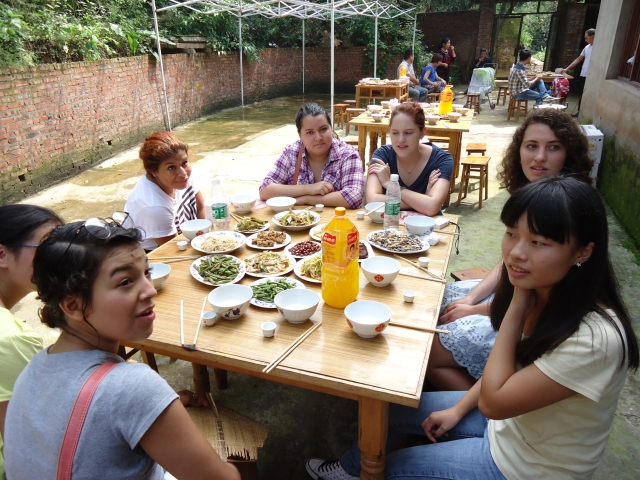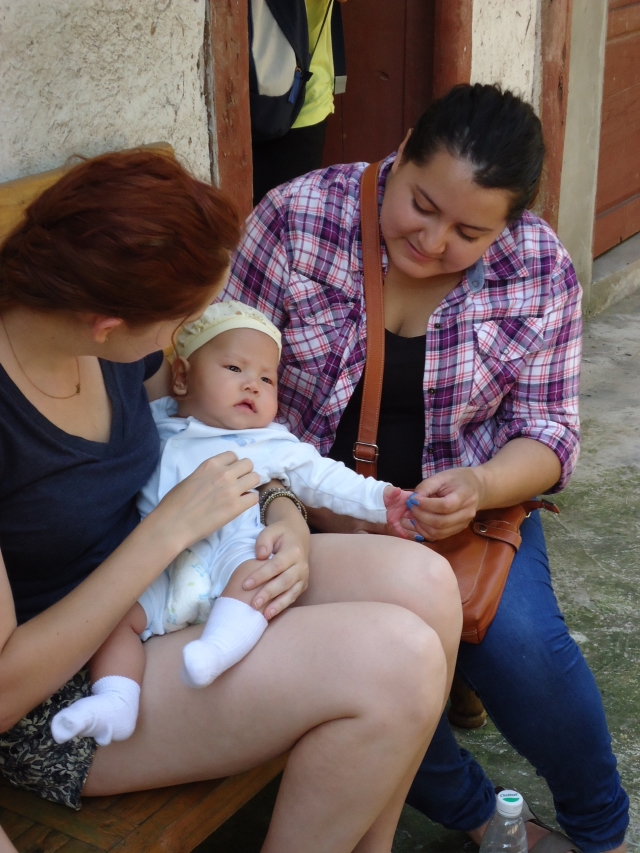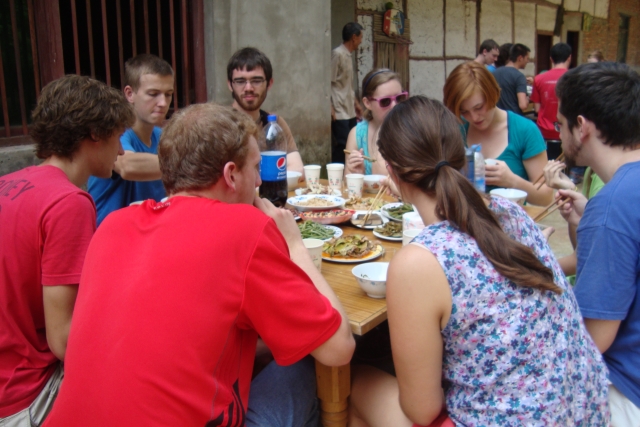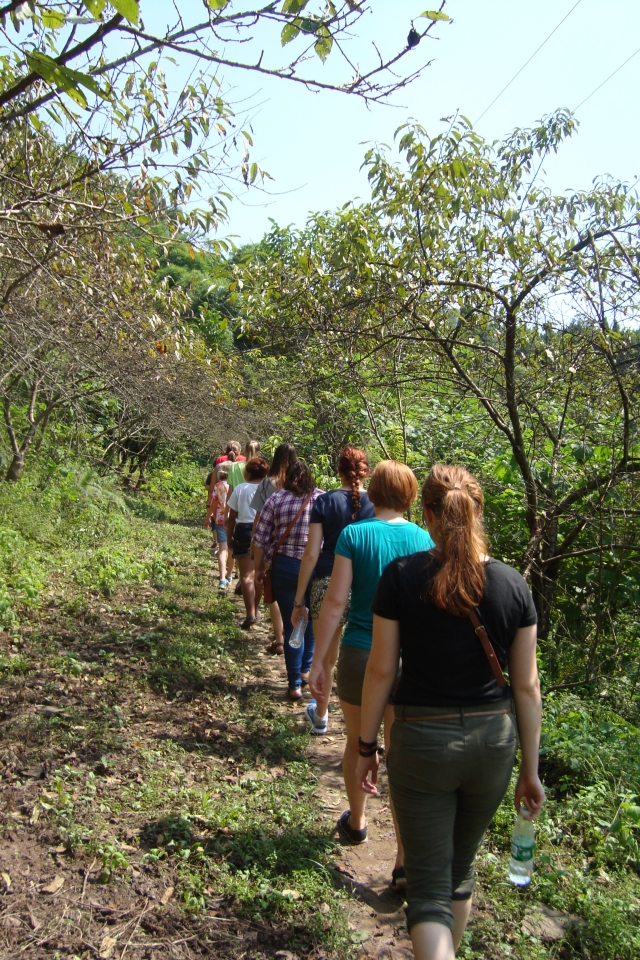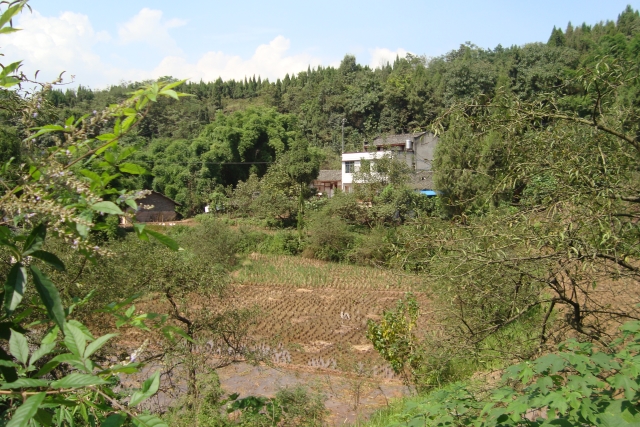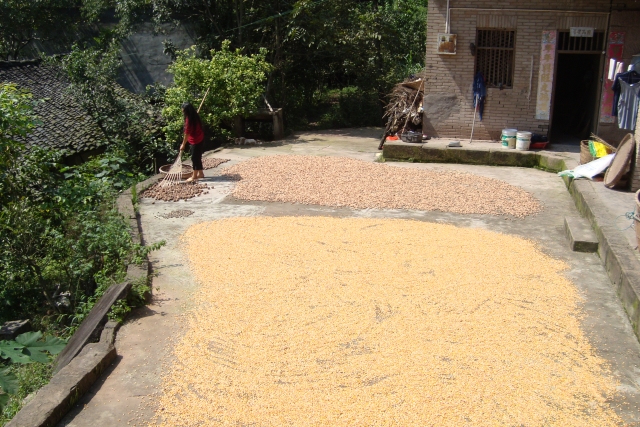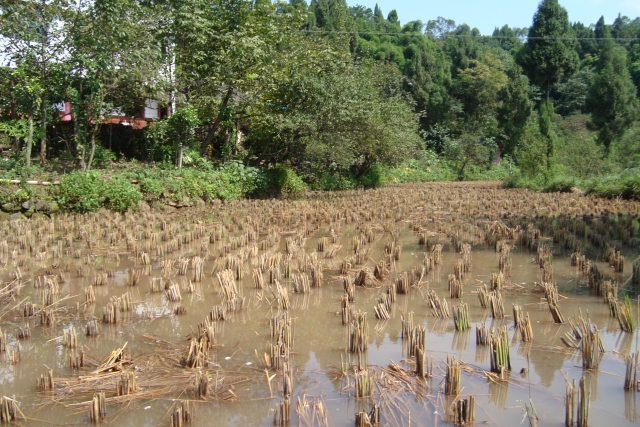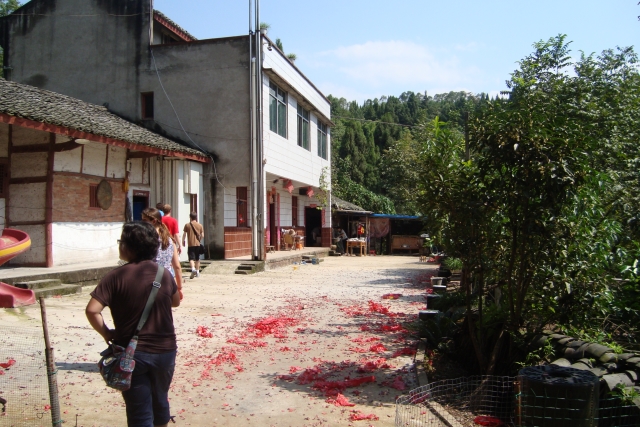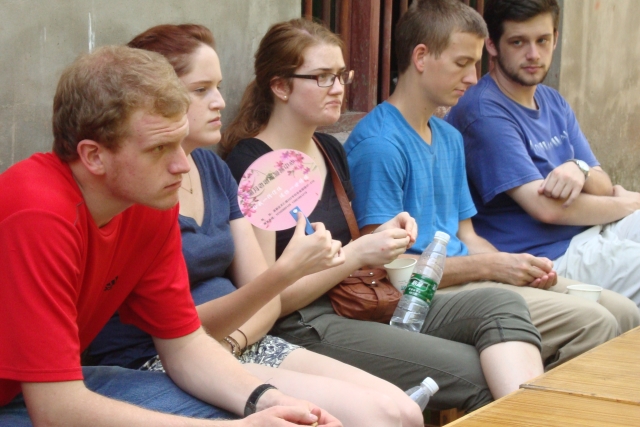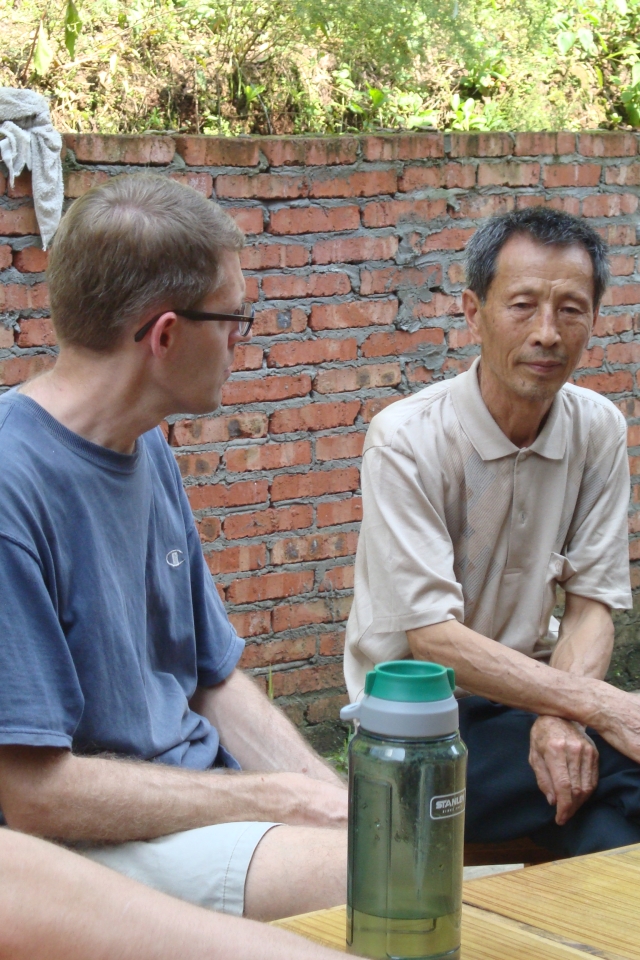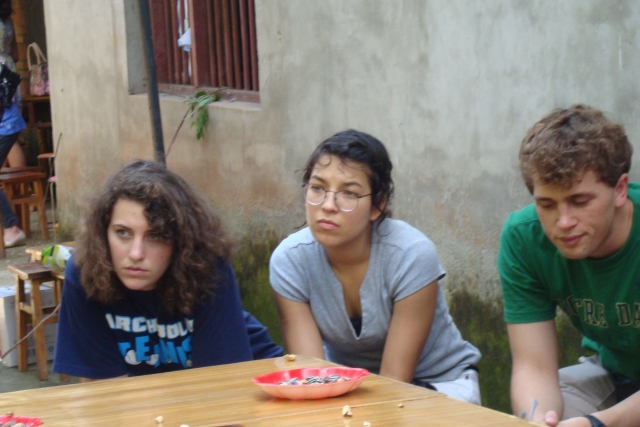Visiting the Duan family farm in the Nanchong countryside
On Sunday, September 21 we visited a traditional farm in the countryside. We rode the number 6 bus out of the city and then walked for about half an hour, up into a small valley that is home to four small farms. The farm we visited has been the home of the Duan family since 1950. It is a small, diversified farm with traditional crops of rice, corn, and canola. In addition, there are small plots of vegetables, yams, melons, and peanuts, as well as many fruit trees and walnut trees. Altogether, the Duan family grows nearly 30 different varieties of grains, fruits, vegetables, and nuts. The family no longer has pigs or cows, although they do have chickens and ducks and also two water buffalo for plowing. Last year one of the sons constructed a fish pond on the farm.
Since Mr. Duan’s seventieth birthday was just a few days away, his immediate family and many of his extended family members had come for the day to help him celebrate. The Duan clan included us in the celebration, offering us three tables with a huge home-cooked countryside meal. They had started cooking the day before. We lost track of the number of cold and hot dishes they served us. Much of the food had been grown on the farm. We sang Happy Birthday in English and Chinese.
After lunch, Mr. Duan sat down with us and, through translation, explained about farming and answered our questions about crops, soil, family farm succession, and farm policy in China. For twenty years Mr. Duan was the elected head of the local village, and so he was quite familiar with farm policy. He credited the reforms of Deng Xiaoping during the 1980s with turning the rural economy around and making farming more productive. Nevertheless, it is more challenging to make a living as a small-scale farmer nowadays than it was 30 years ago and more government support goes to larger, mechanized farms in other parts of China. Farming on small plots of rugged hillsides, here in Sichuan, is physically demanding and cannot easily be adapted to modern machinery and farm equipment. Since 2002 the Sichuan government has been paying farmers to plant trees on the steepest parts of the hills to try and stop soil erosion. Mr. Duan thinks this is a good idea, and tried to explain how different the valley looks today with all the trees that were not here a dozen years ago on the surrounding ridges.
For two generations now, most young people from rural Sichuan have been moving to the city to get better paying urban jobs. All of the Duan children live in the city, although they come home often to help with larger tasks, such as rice planting and harvesting. Otherwise Mr. and Mrs. Duan do all the farm work themselves. He is grateful that his children and grandchildren still value the farm. His daughter-in-law told us that although many city dwellers would never consider doing the hard work of farming, they are envious of the quiet natural environment that countryside farms provide as China becomes ever more urbanized.
The SSTers spent the latter part of the afternoon in various free time activities. Some played Frisbee, others played card games, and about a dozen sat around the tables in the shade and sang from the hymnals we had brought, accompanied in some cases by guitar. Sam had purchased an inexpensive guitar at a music shop the previous week. Late afternoon we walked back out to the bus line and enjoyed the sunny weather. After a week of near constant rain it felt good to have the sun on our backs.

